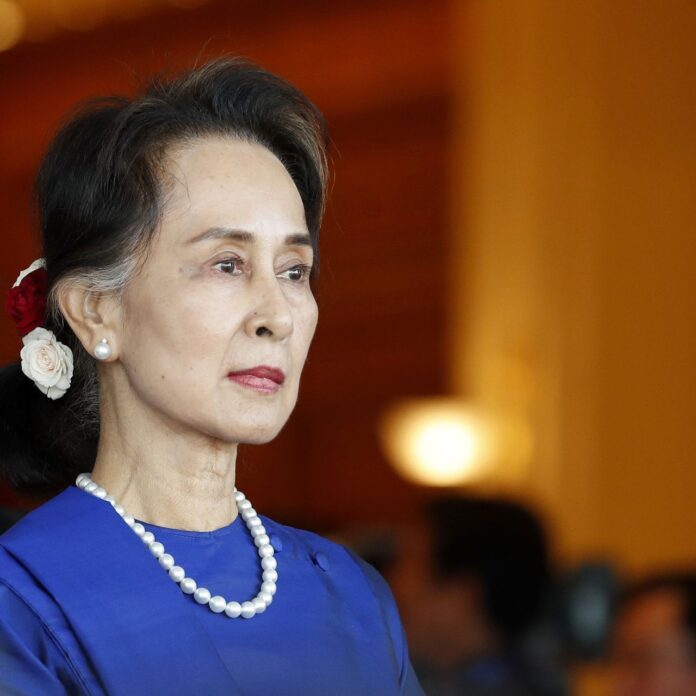In a surprising turn of events, former Myanmar leader Aung San Suu Kyi has been granted a partial pardon by the military junta, reducing her hefty 33-year jail sentence by six years. The move came as part of a seasonal amnesty, and it is the first time that periodic amnesties have included both Aung San Suu Kyi and former president Win Myint since their ousting by the military in February 2021.
The 78-year-old Nobel laureate had been under military detention since the coup that triggered a civil war in Myanmar, resulting in thousands of casualties. The military junta faced international criticism for alleged disproportionate violence against those opposing its rule, and their move to isolate Aung San Suu Kyi further intensified global concern for her well-being.
Last week, in a somewhat surprising gesture, Aung San Suu Kyi was relocated from prison to house arrest in the capital Nay Pyi Taw. This development could indicate a possible shift in the military’s stance, as they seem to be making concessions to revive stalled diplomacy efforts with the international community.
While certain countries have initiated dialogues with the junta, these talks have drawn criticism for excluding Aung San Suu Kyi’s party, which won a resounding majority in the 2020 elections. The military used allegations of election fraud as justification for the coup, and any meaningful negotiations with the international community would likely necessitate Aung San Suu Kyi’s involvement. However, her isolation since her arrest had kept her condition largely unknown for more than two years, causing further apprehension.

Aung San Suu Kyi’s legal team is actively appealing the convictions against her, which span from election fraud to corruption. All these charges were brought against her through closed-door, military-run trials, widely denounced as a mockery of justice by human rights groups.
The postponement of the promised election, which was supposed to take place by August this year, further complicates Myanmar’s political landscape. The military junta’s actions have been met with fierce resistance, and the path to national reconciliation remains uncertain.
The partial pardon for Aung San Suu Kyi and Win Myint may represent a faint glimmer of hope for Myanmar’s future. It signifies a potential willingness by the military to engage in dialogue and a desire to navigate the delicate diplomatic waters ahead. However, substantial challenges remain, and restoring peace and democratic governance to Myanmar will require genuine efforts and the inclusive participation of all stakeholders.
As the world continues to watch and hope for a positive outcome, the fate of Aung San Suu Kyi and Myanmar’s political landscape hangs in the balance. The international community must remain vigilant, urging for the restoration of democratic principles and human rights in the country. Only through collective efforts and genuine dialogue can Myanmar truly find its way towards peace, stability, and reconciliation.





